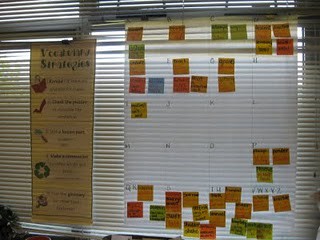 You’ve been studying that extra-curricular language for months now but it’s got to the stage where you need to do something about those words you’re always forgetting.
You’ve been studying that extra-curricular language for months now but it’s got to the stage where you need to do something about those words you’re always forgetting.
Testing yourself, you hit a problem word – it’s on the tip of your tongue but you can’t quite get it out.
Do you:
a) Close your eyes, crease your forehead, and attempt to pull it from the depths of your memory?
b) Whack the question into your smart phone and obtain the answer in a matter of seconds before moving onto the next word?
The benefits of technology and cutting edge software for learning are abundantly clear: Online resources, access to information and enhanced communication at our fingertips.
This is all well and good but learning a language requires fast-as-lightning mental word processing that a computer may not be able to replace any time soon.
1) Stop resorting to mental elevators
Cultivating good memory takes practice; this doesn’t have to entail long, grueling mental workouts, just little exercises now and again to keep your mind in shape.
Every time someone gives you a new phone number, try memorizing it by heart before inputting it into your mobile. Can you? It’s all about learning to avoid impulsively looking something up the minute you forget it…
For vocabulary practice, give yourself bite-sized lists of five or six words to practice on a daily basis and glimpse at these words in the morning, evening, and through the day to see if you can retrieve the information.
2) Unleash Your Inner MC: Sorting & Forming Rhymes and associations
Rap music might not be your cup of tea, but if there’s anything a good free styler has, its great working memory.
Jay-z is the best known free styler around, it’s been said he composes all his lyrics entirely in his head: He thinks of what he wants to say, remembers it, and then recites it.
It takes loads of practice to get to this level, but the processes used for rap can also be applied to general vocabulary learning: Practice coming up with as many rhymes for your words as possible, then test your recall of the new words by remembering these various associations.
3) Connect the Unconnected – Peg It!
The peg system works a treat for systematizing vocabulary learning: It involves ‘pegging’ a word to a known sequence to construct mental pictures.
The following number-rhyme scheme gives an example of the way non-native English speakers could commit the following words to memory, and this is a method clearly applicable to other languages.
1 – Bun
2 – Shoe
3 – Tree
4 – Paw
5 – Hive
The peg system also works brilliantly for building sentences through rhyming but semantically-unconnected words. To learn the Spanish word for butter, ‘mantequilla’, you could apply a sentence like this:
“The butter meant ta kill ya”.
The butter suggests the meaning, and the rhyme triggers word-recall. This technique works best if you devise them yourself though, don’t steal pre-made ones and the weirder the associations, the better!
4) Use Technology Logically
 You’d be foolish not to take advantage of technology for vocabulary learning, but take an intelligent approach.
You’d be foolish not to take advantage of technology for vocabulary learning, but take an intelligent approach.
Learning vocabulary seems boring and passive, just endless lists of words; this is why online software programs like WORDREADY are great – they make learning that little bit more interactive.
Smart phone vocabulary learning apps like Byki and WordList 101 are also tools to use when on the move – they’ll keep the words persistently fresh in your mind!
All in all, these suggestions represent long and short-term methods for remembering words, but my overall tip is to make language learning fun, there are loads of ways to do this, whether it’s writing songs, making crazy associations or playing games.
Find the best way for you, as no one’s motivated when they’re bored!
![]() Louise Blake has jumped through all the essential academic loopholes, now she wants to impart what she’s learnt to those who could benefit. She especially believes schemes like Pingu’s English (who also provide a range of education franchise opportunities via their Master Licensee Partnerships) represent great methods for imaginative learning that we should all pay attention to.
Louise Blake has jumped through all the essential academic loopholes, now she wants to impart what she’s learnt to those who could benefit. She especially believes schemes like Pingu’s English (who also provide a range of education franchise opportunities via their Master Licensee Partnerships) represent great methods for imaginative learning that we should all pay attention to.



 Follow
Follow Fan
Fan RSS
RSS